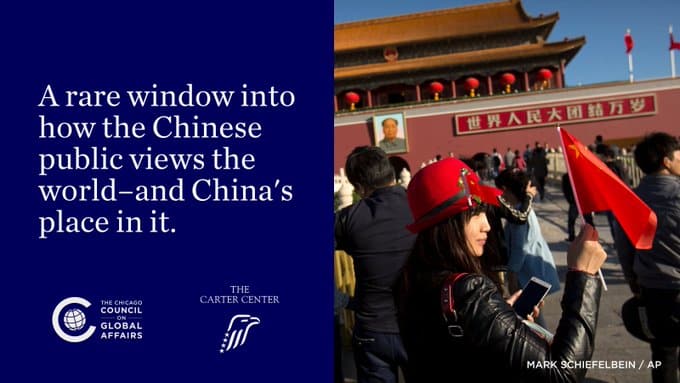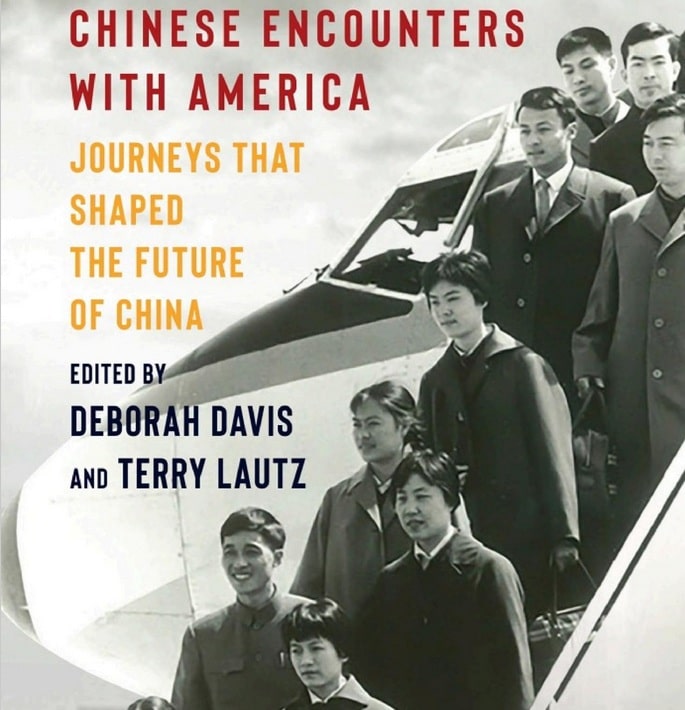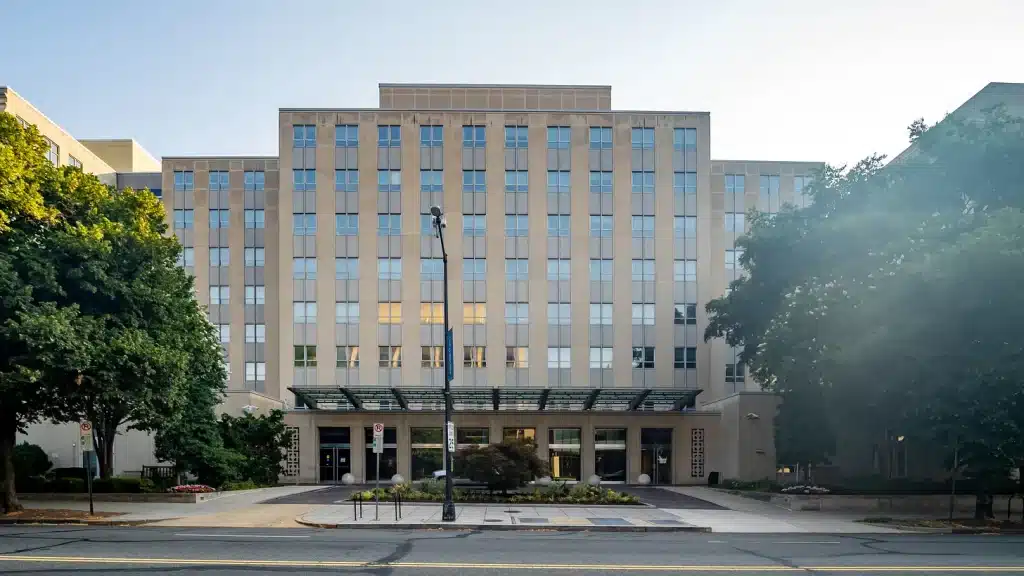Ding Kuisong: Reform and Development Research Foundation Meeting
Ding Kuisong is the Secretary General of the China International Culture Exchange Centre, which is a national non-profit organization that has deep roots and connections with Chinese leaderships. Ding is deeply involved with decision-making in China on policies toward the US and this speech provides a good window into the Chinese thinking of how China will respond to US disengagement and confrontational approach to China. This speech is widely shared by the Chinese media and reflects some of the main strain thinking of top Chinese intellectuals and advisors.
Speaking before the Reform and Development Research Foundation Third Annual Meeting, Ding Kuisong declared that the United States’ new strategy towards China is one of competition, pressure, and confrontation from three primary standpoints: the government, the academic community, and the business community.
Firstly, Ding began by summarizing the National Security Strategy: China is now the United States’ most powerful strategic competitor, and by way of unbalanced reciprocity and unprincipled mercantilism, China has eroded the US’s economic interests around the globe. To combat the threat China poses to the existing world order, the United States and its allies are formulating their response. He says that after more than a year of contact and communication with the Trump administration, it has become clear that this American response will not change.
Secondly, Ding asserted that the academic mainstream in the US has been shifting towards the positions of the Trump administration, believing that recent changes to the Chinese political system are not in the interest of the United States and will pose an authoritarian threat to the world order.
To illustrate his point, Ding Kuisong referenced an article written by the Assistant Secretary of State for East Asian and Pacific Affairs during the Obama administration, Kurt Campbell, that was recently published in the Foreign Affairs. In this article, Campbell argued that whether the United States has opted for ‘the carrot’ or ‘the stick’, its strategy towards China in the past decades has been misguided. He advocated abandoning such attempts, instead encouraging strengthening alliances between the US and other Asian nations to offset China’s influence. In this, Ding argued that Campbell represents the mainstream academic community and the viewpoint of the American establishment.
Thirdly, Ding pointed out that the American business community’s understanding of China tends to be a negative one. The active role that American enterprises once played in promoting and stabilizing Sino-US relations has declined in recent years. He claimed that the United States is now unwilling to cooperate with China regarding strengthening economic and trade regulation and is especially dissatisfied with China’s protection of its financial market.
He said that the American Chamber of Commerce in China conducted a poll last year and that 60% of its members reported having no confidence in the Chinese government’s further opening up of the market in the next three years. Subject to financial regulation, US banks currently comprise only 2% of total banking assets in China, and life insurance companies only account for 6% of the Chinese market share. Furthermore, in regard to the automotive industry, bank payments, the manufacturing of high tech parts, and other fields, the United States feels that China has not fulfilled its commitment to the WTO.
Therefore, over the past two years, American companies in China have accused China of not observing the principle of reciprocity and have begun to stand up to the competition posed by Chinese enterprises.
In this context, Ding said China must be ready to confront five major threats posed by the US strategy towards China.
These five trends are 1) ideological opposition, 2) amplifying military power, 3) strengthening alliances, 4) actively building up security forces in the Indo-Pacific region, and 5) distracting China by building up China’s civil society, separationist groups, and terrorism.
Firstly, the United States does not recognize the Chinese proposal to establish a so-called “community of shared future.” Ding referenced a Wall Street Journal article written by President Trump’s former National Security Advisor HR McMaster and former National Economic Council director Gary Cohn, who together claimed that this notion of a ‘global community’ is a false one. They, instead, chose to embrace the idea that the international politics today is based upon powerful NGO’s and business groups. Ding also quoted the Deputy Assistant Secretary for the Bureau of East Asian and Pacific Affairs Alex N. Wong and President Trump’s former Secretary of State Rex Tillerson in calling for the principles of democracy and a free-market economy in the Indo-Pacific region. Ding claimed that the US believes that China wants to overthrow the rule-based international order and introduce its own order.
Secondly, Ding pointed out the significant force buildup of the US military in the Pacific and noted recent increases to the military budget. This year the United States announced plans to reestablish the Second Fleet in the Western Pacific, allegedly in response to heightened tensions between NATO and Russia; however, Ding Kuisong insisted that its true purpose is to claim a greater stake in the Indo-Pacific region.
Thirdly, the United States is intent on strengthening its alliances.
Fourthly, the United States endeavors to improve its relationship with Taiwan and to contain China’s peaceful development. Ding specifically pointed to the recent “Taiwan Travel Act” that allows American officials at all levels to visit Taiwan, and the State Department’s recent approval of the marketing license required for American manufacturers to sell submarine technology to Taiwan, clearing the path for the construction of domestic submarines. Ding interpreted these acts as a test of China’s patience and warned that they could prove to be the “minor incidents that spark a war”.
He told the audience at the meeting, “We have noticed that our Air Force has recently been conducting overflights around the Taiwan island, an indication that we are preparing (for war). I conclude that the opportunity and window of time for the peaceful settlement of the Taiwan issue is closing. Whether or not I have come to this conclusion too early is up for discussion”.
Fifthly, Ding referenced recent agitation against the Chinese government by the Chinese dissidents and separatists in the United States. He says that Trump’s former chief-strategist, Steve Bannon, met with these dissidents and attended a meeting organized by them in Tokyo. In April of this year, the United States Congress passed a resolution on the reincarnation of the next Dalai Lama. In Ding’s view, this is unprecedented. Americans are trying to stir up trouble in Tibet and to disrupt the China’s Belt and Road Initiative.
Finally, Ding Kuisong offered his own thoughts on how China should respond to these challenges. China is facing daunting difficulties in deepening domestic reform and the international situation is also complex and dangerous. A successful management of US-China relationship is a top priority that can ensure China’s safe passage through this period.
China should do more to make “building a community of shared future for the mankind” a true plan and reduce the influence of the Cold War mentality. Ding stated that in order to play a role in shaping the future of international relations, China must strive to be a leader in terms of ideology and morality, and he proposes three steps to achieve this end.
First, in order to improve interactions within the international community, China should strengthen and expand its own ideologies to guide the international community away from Western and Cold War ideas such as the theory of power rivalry and democratic peace.
Second, China must strengthen and expand the idea of the “community of a shared future for the mankind” on the international scale, as done previously with economic construction. The “One Belt One Road Initiative” is where this idea should come into being, complemented by construction with Chinese cultural characteristics and poverty alleviation efforts, ultimately improving global governance and economic cooperation in the new global order.
Third, China must first bring the community of shared future among Asian countries. This is part of Xi Jinping’s thought that Asia belongs to Asian people and Asian people should defend Asian security.
Ding stated that the basis for stabilizing US-China relations is to focus on China’s own reform and development, putting a precedence on continued development and investment in national defense in order to protect this development. Ding warned, however, that China must not be swayed by US competitive strategy, and must be wary of being dragged into the quagmire of an arms race with the United States, the same trap that the former Soviet Union fell prey to.
Ding said China should calmly observe the political trends within the United States, while still maintaining China’s own strategic determination and without ceding its own principles. Regarding issues such as Taiwan’s territorial sovereignty, he urged that it is necessary to establish and uphold a bottom line, while making adequate military and diplomatic preparations to ultimately thwart any US scheme to break this bottom line and incite chaos.
“We must confront (the anti-China) wave in the US with steadfastness and determination while adhering to the principle of dialogue and non-confrontation, sponsoring and encouraging the friends of China to come forward and to objectively review the situation of US-China relations. I believe this is particularly important now,” said Ding.
“Just now, [Chinese Eximbank] President Li (Ruogu) had described some of the recent situations. The current pressure on the friends of China (in American) is considerable.” He encouraged coordination by multiple departments within the Chinese government to win over hardliners, Congressmen, and populist representatives within the United States, even carry that work to the state level. He believed that in the current situation, to get along with populists and hardliners (in America) is especially important.
It is critical to expedite reform in related fields, particularly to advance the opening up our financial industry without compromising our national financial security.
We must eliminate both external and internal interferences, unify understanding from the perspective of controlling the stable development of US-China relations, and pragmatically deepen our comprehensive strategic partnership with Russia.
We must recognize that deepening the Russia-China comprehensive strategic partnership of cooperation strongly bolsters China’s rise, rather than just banding together to oppose American pressure.
This recognition will enable us to see the real nature of the strategic partnership between China and Russia and to dilute the strength of attacks from the West and distract their attention on China and Russia.
Finally, we must promote the construction of “One Belt One Road” as a form of ‘win-win’ cooperation and strive to reap early benefits.
We hope that the central government marshals the financial and human resources of the public and private sectors to make key projects like the China-Pakistan Economic Corridor a significant success. These early successes are essential to show and tell the word of BRI’s benefits and gain international recognition.”








